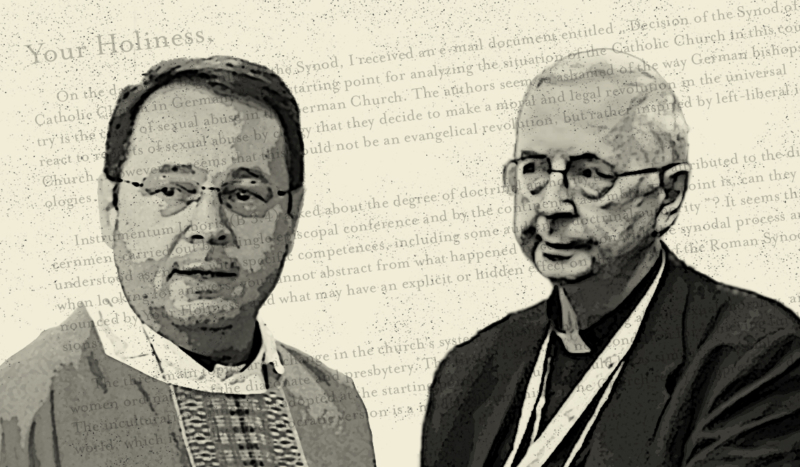
Dr. Georg Bätzing By Spurzem - Lothar Spurzem - Own work, CC BY-SA 2.0 de, via Wikipedia
CV NEWS FEED // The president of the German bishops’ conference accused the president of the Polish Episcopal Conference of “unsynodal and unbrotherly behavior” and an “enormous overstepping of his authority” in a letter dated November 21 that the Polish daily newspaper Rzeczpospolita published on November 27.
Bishop Georg Bätzing of Limburg, Germany, argued that Polish Archbishop Stanislaw Gądecki made “false claims” to Pope Francis about the German Synodal Way in Gądecki’s October 9 letter. He further criticized Gądecki for not discussing the contents of the letter with him when they were both present at October’s Synod on Synodality.
In the October 9 letter, Gądecki raised concerns that the 2023 Synod on Synodality used a German Synodal Way document to guide discussions. The document, he argued, advocated for a revolution “inspired by left-liberal ideologies” rather than the gospel. He further condemned outcomes such as blessing ceremonies for same-sex couples and proposed his hope that the October synod in Rome would not be “used to authorize German theses.”
Gądecki’s letter to the pope, in which he criticized several outcomes of the “German Synodal Path” as “extremely unacceptable and un-Catholic,” did not become public until mid-November, when Poland’s Catholic news service KAI published it.
In response, Bätzing wrote to Gądecki directly in a November 21 letter, saying: “I firmly reject such behavior of the Archbishop, the tone of his letter, as well as the way he presented the facts.”
“Let me therefore make it clear that I consider the Archbishop’s letter to be an enormous overstepping of his authority,” he continued.
“Nowhere in the texts can one find the intention to carry out a revolution in the universal Church,” Bätzing said of the German Synodal Way document. “At no point in the resolutions of the Synodal Way in Germany is the hierarchical structure of the Catholic Church fundamentally questioned.”
After four German women left the German Synodal Way in February because they believed it “depart[ed] from the universal Church,” they sent a letter to Pope Francis on November 6 expressing their concerns about Germany establishing a synodal committee “aimed at preparing the introduction of a directive and decision-making council.”
In a letter on November 10th, the pope agreed that such a committee “as outlined in the relevant text of the decision cannot be harmonized with the sacramental structure of the Catholic Church.”
Bätzing further argued that the question of women’s ordination has “the possibility of appropriate investigations” and that in terms of blessing same-sex couples, “the question arises… whether it is possible to refuse a blessing to couples who ask for it.”
Bätzing concluded the letter by asking for dialogue in spite of “this critical situation of mutual alienation and bitterness.”
Gądecki recently criticized the structure of the Synod on Synodality and its association with the German Synodal Way in an interview where he said that “the faithful need clarity.”
At the beginning of this year, he sent a letter expressing “brotherly concern” to Bätzing and met with Pope Francis to share his concerns about the German Synodal Way.
This week, Bätzing and Gądecki are attending the plenary assembly of the Council of European Bishops’ Conferences (CCEE) in Malta on Nov. 27–30.
In spring 2024, Gądecki’s second and final term as president of the Polish bishops’ conference will come to an end.
